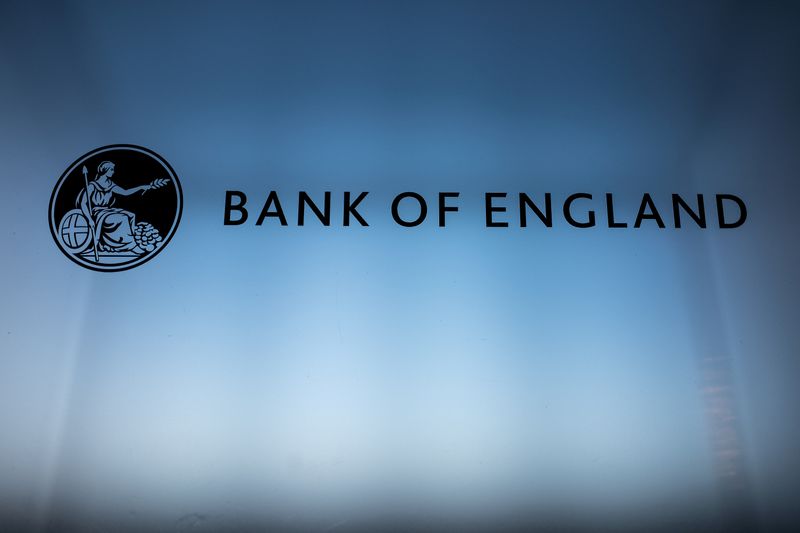
FILE PHOTO: The Bank of England logo is seen on a lectern during the launch event for the new note design at the Turner Contemporary gallery in Margate, Britain, October 10, 2019. Leon Neal/Pool via REUTERS
February 26, 2020
By Huw Jones
LONDON (Reuters) – The Bank of England told banks on Wednesday to accelerate their efforts to ditch the Libor interest rate benchmark if they want to avoid facing more punitive terms when borrowing from the central bank.
The BoE wants Libor, which banks were fined billions of pounds for trying to rig, replaced with the central bank’s own overnight “risk-free” Sonia rate by the end of 2021.
Market participants have started to use Sonia for new futures contracts, but progress in the cash loans market has been slower, with question marks over what happens to many “legacy” contracts with terms that go beyond 2021.
Libor, available in sterling, dollar and other currencies, is used to price contracts like home loans and credit cards worth around $400 trillion globally.
“We need to see another decisive acceleration in effort in 2020 to ensure risk-free rates are adopted across the full range of sterling business, and Libor is left behind for good,” BoE executive director for markets Andrew Hauser told an ISDA derivatives industry conference.
Hauser said that from October, the Bank will start increasing “haircuts” progressively on Libor-linked collateral used by banks to borrow from the central bank, meaning more collateral would be needed to cover the same amount borrowed. He added that any Libor-linked collateral issued after October 2020 will be ineligible for use at the BoE.
The BoE will also publish a “compounded” Sonia index from July to help the transition from Libor in loans.
“These initiatives are aimed at turbo-charging sterling transition, helping the market deliver against its commitment to transition away from Libor and further de-risking sterling markets,” Hauser said.
Libor is based on quotes submitted by a panel of banks and its compilation has been reformed since the rigging scandal to make manipulation harder.
But Hauser said the “chronic” lack of actual transactions means that Libor is “simply too fragile a benchmark to support a sustainable business model”.
Its continued existence poses material risks to financial stability, both in Britain and globally, Hauser said.
Market participants already face a deadline next month to use Sonia in new futures contracts, with a third quarter deadline for replacing Libor with Sonia in loans.
(Reporting by Huw Jones, editing by Carolyn Cohn and Emelia Sithole-Matarise)

